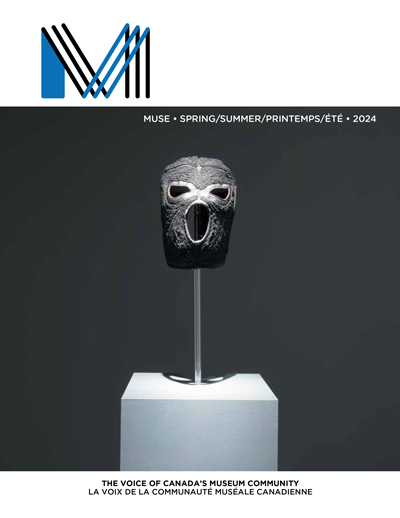Inside the Story
Unlikely Companions: A Fisherman and Pelicans in Cuba – A Captivating Photo Essay
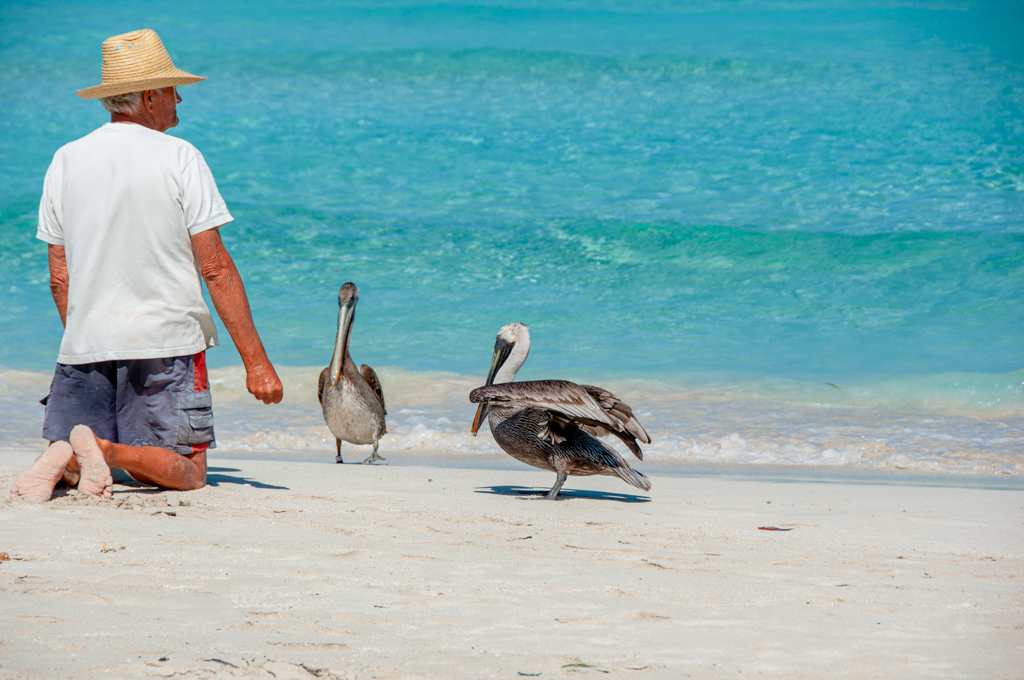
The Power of Routine: A Fisherman’s Bond with the Wild
In the vast world of nature, moments of unexpected connection between humans and wild animals remind us of the quiet harmony that can exist between species. Stories of unusual bonds are scattered across cultures—like that of the Japanese macaques in Jigokudani, who share hot springs with humans, or the legendary friendship between Christian the lion and the men who raised him before setting him free in Africa. Even in urban landscapes, flocks of pigeons recognize familiar hands that feed them daily, a silent agreement of trust forged in routine.
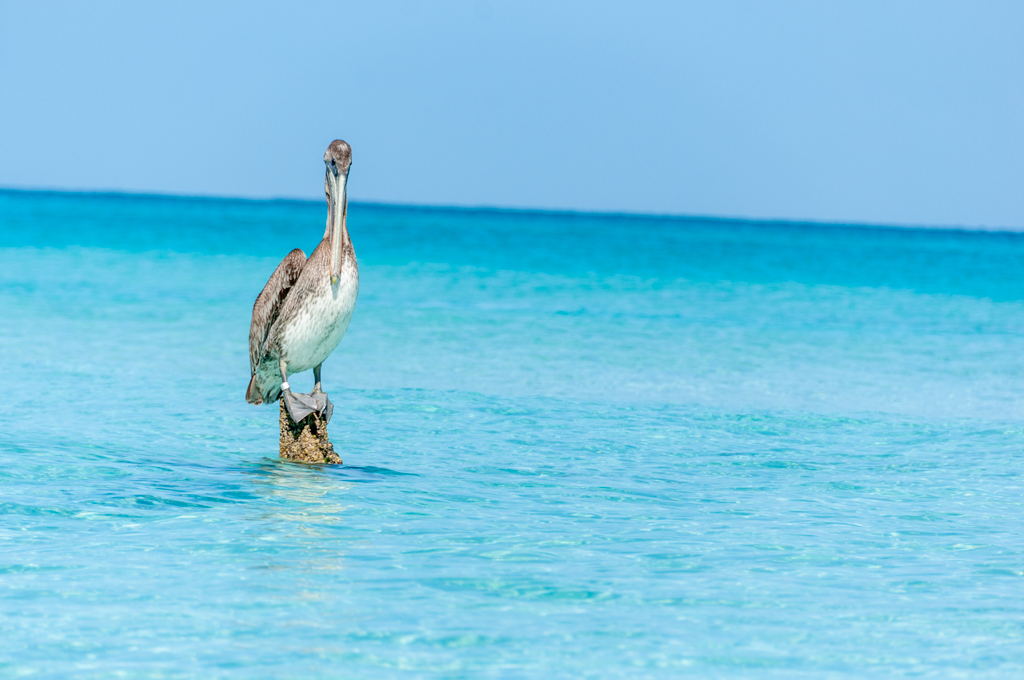
Feathers, Salt, and Trust: A Cuban Shoreline Ritual
On a sun-drenched beach in Cuba, another such story unfolds—one not of domestication or training, but of mutual understanding between a fisherman and his unlikely companions: a small group of brown pelicans.
It starts with a lone bird, standing in the shallows, waiting. Not for fish to catch, but for the familiar presence of a man with weathered hands and a quiet demeanor. When he arrives, they come closer. One spreads its wings, cautiously stepping toward him as he kneels in the sand. Another lingers at a distance, head tilting, observing. Slowly, the birds close in, drawn by something beyond food—perhaps curiosity, perhaps familiarity, or simply a habit born from repetition.
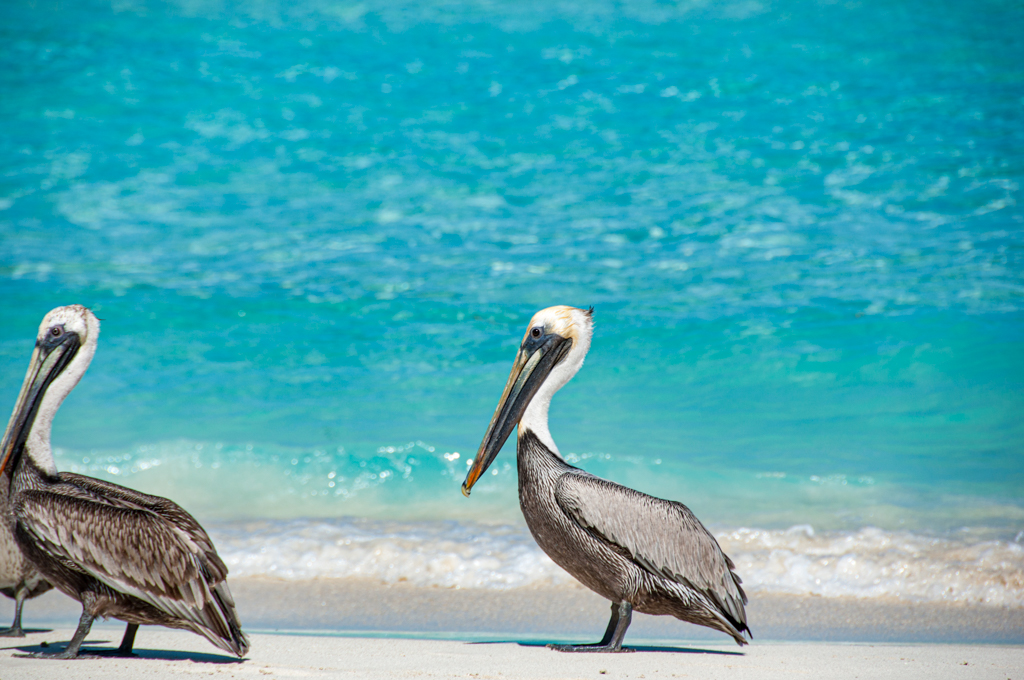
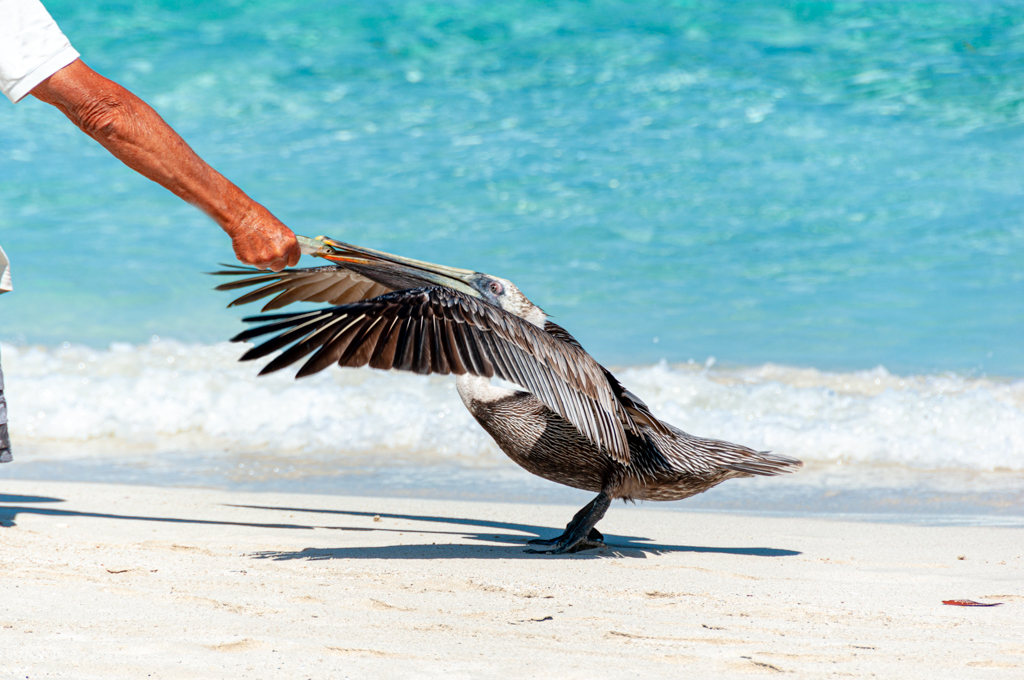
A Moment of Mutual Recognition by the Sea
There’s no cage, no leash, nothing to keep them there but their own will. And yet, they stay. They waddle forward, waiting as the man reaches out, offering scraps from his morning’s catch. A silent rhythm has formed over time, an unspoken trust between human and bird. In exchange for a meal, the fisherman receives their company—a fleeting yet profound companionship that exists only in that moment, on that shore, between the turquoise waves and golden sand.
It’s a reminder that nature, even in its wildest form, has a way of recognizing kindness. And sometimes, the simplest interactions—born out of routine, patience, and respect—create stories that transcend language, culture, and species.
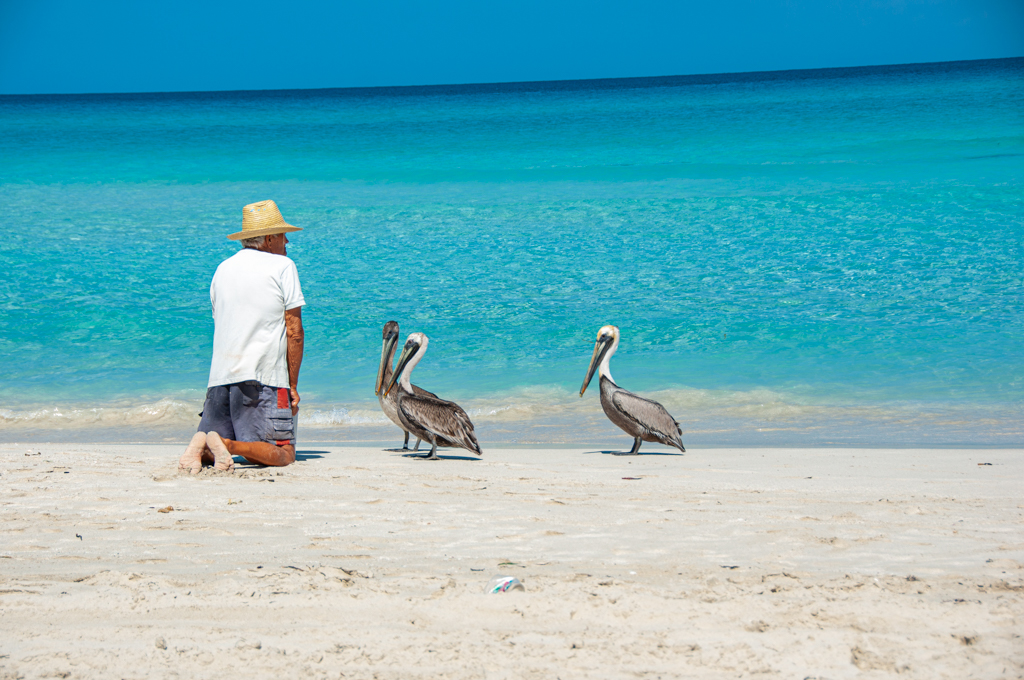
The scene is a testament to coexistence—an ordinary morning transformed into a quiet ritual of trust. For the fisherman, the pelicans are not pets or nuisances, but part of his daily rhythm. For the birds, he is a reliable figure in a landscape of shifting tides. In Cuba, where coastal life is deeply intertwined with nature, moments like these are not performances but continuations of living traditions. As climate and urban development continue to reshape shorelines, these human-wildlife interactions remind us of the delicate balance still possible when empathy meets habit.
Reflections
As I stepped back from the scene, I realized this wasn’t just a story about animals and humans — it was about rhythm, respect, and the subtle ways we relate to the world around us. These moments aren’t staged. They unfold quietly, like poetry on a tide. And in their stillness, they remind us of something essential: that trust can be built even without a shared language — only presence, and patience.
Witnessing this interaction also made me think about how fragile — and resilient — these connections are. Brown pelicans, once on the brink of extinction, have made a remarkable recovery thanks to decades of conservation work. Organizations like the Audubon Society continue to play a vital role in protecting their habitats and ensuring that such encounters remain possible for future generations.
If you’re interested in other photo essays about nature and connection, check out this post about Rio de Janeiro’s human perspectives in city life.

